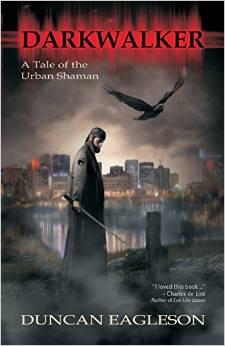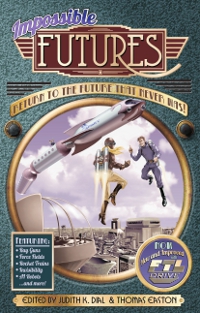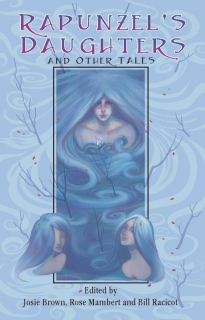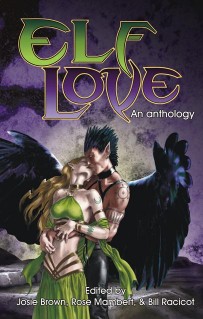Signs in Colour
Continuing to watch and respond to filmed versions of The Sign of Four, we move from the silents and old black and white films into the realm of colour (yes, American writer affecting British spelling of “colour” because Sherlock Holmes.)
THE SIGN OF FOUR (1968)
Peter Cushing, Nigel Stock, Ann Bell, directed by William Sterling, Screenplay by Michael and Mollie Hardwick
 Peter Cushing as Holmes in The Adventures of Sherlock Holmes: The Sign of Four (1968, BBC)
Peter Cushing as Holmes in The Adventures of Sherlock Holmes: The Sign of Four (1968, BBC)
In 1964, the BBC began filming The Adventures of Sherlock Holmes, and ongoing series adapting the Doyle stories starring Douglas Wilmer as Holmes and Nigel Stock as Watson. After a pilot and twelve episodes, the series went on hiatus, going into reruns for the next two years while the BBC negotiated with the Doyle estate for the rights to do more stories (they had originally licensed a limited number).
By the time in 1968 when the BBC was ready to enter production on new shows, this time in color (the previous episodes had been black and white), Douglas Wilmer had declined to continue. They sought out Peter Cushing, who had been a well known television star before achieving cinematic success with Hammer Films. Cushing had already played Holmes for Hammer in the 1959 Hound of the Baskervilles, and was a serious Holmes scholar himself, so he was a natural choice.
The Sign of Four would be the second to last of sixteen episodes in this second series. It’s a reasonable adaptation, fairly faithful, if condensed (it was an hour-long episode of a TV series), although all things considered, we might have expected better from a well known pair of Holmes scholars (the Hardwicks have written both pastiches and nonfiction books about Holmes).
 Holmes (Peter Cushing) and Watson (Nogel Stock) investigate the death of Bartholomew Sholto (Paul Daneman) (1968, BBC)
Holmes (Peter Cushing) and Watson (Nogel Stock) investigate the death of Bartholomew Sholto (Paul Daneman) (1968, BBC)
We don’t get the opening scene of the book, which is Watson remonstrating with Holmes about his drug use. This was 1968, after all, and the BBC clearly did not want to encourage drug use in the young by showing their hero using (or at least defending the use of) cocaine. Although Rathbone’s 1932 Hound of the Baskervilles has a brief allusion to this at the end, it’s a single throwaway line, which was cut from the version released for television. We won’t see Holmes’ fondness for cocaine addressed directly on film until Billy Wilder’s 1970 The Private Life of Sherlock Holmes.
Cushing’s Holmes is crisp and focused as usual, but Nigel Stock takes Watson into buffoon territory with his mooning over Mary Morstan, the effect of which is amplified by the writers’ choice to turn Thaddeus Sholto into a rival to Watson for Mary Morstan’s affections. Since it was made as part of a television series, it’s understandable that they should want to avoid the wedding bells at the end of the book, and keep Watson in Baker Street throughout the series. But the Grenada/Brett series made a similar choice, and still managed to leave Watson his dignity.
 Tony McLaren as Wiggins looks a bit old for a street urchin (1968, BBC)
Tony McLaren as Wiggins looks a bit old for a street urchin (1968, BBC)
The supporting cast is generally good. Jon Stratton as Inspector Athelney Jones is appropriately smug and self-satisfied, Howard Goorney’s Jonathan Small wry and resigned. Ann Bell as Mary Morstan is more of a flirtatious coquette than she appears in the book, but that’s clearly the script more than the actor. Bartholomew Sholto alone stands out as overdone. Which hardly surprises — a bizarre and eccentric character to begin with, Sholto is one it’s too easy to take over the top. Paul Daneman’s Sholto is a vamping, camping caricature, complete with stereotypical lisp. Ah, well, it was the ’60s, after all.
This is, I think, the first time we’ve ever had the Baker Street Irregulars on film. Unfortunately, the group of “dirty street arabs” don’t “invade the house” as they do in the book, we only see Wiggins (Tony McLaren), the leader of the group. Doyle doesn’t specify their ages, only that Wiggins is taller and older than the others, but I’ve always thought Wiggins was perhaps in his mid-teens at most, while McLaren looks about twenty-five.
As is often the case with this series, the tight budget and short schedule shows. As Holmes, Watson, and the dog Toby trail Jonathan Small and Tonga through London, there’s not a single soul to be seen on the streets. Not a one. No hansom cabs, no pedestrians, no newsboys or costermongers shouting their wares. It’s bizarre and not a little eerie, as if the dog had led Cushing and Stock into some end-of-the-world film that was shooting the next sound stage over.
 The dog Toby leads our boys on the trail of the miscreants through the utterly empty streets of London (1968, BBC)
The dog Toby leads our boys on the trail of the miscreants through the utterly empty streets of London (1968, BBC)
Director Sterling and cinematographer Eddy Best have made some very odd choices here, especially in the river chase scene. We only ever see the Aurora from behind, and we never see the police launch at all except in close-ups on its passengers and pilot, and the occasional close shot of the bow surging through the water. At first I thought this was due to the tight budget, and they had only one boat they were using for both, but what we do see of the police launch makes it obvious this isn’t the case—the launch Cushing & Co. are on is obviously bigger, and a different color. It’s puzzling.
Although there’s no opening debate about cocaine, in the final scene, we do get a version of Holmes’ speech about why he uses cocaine, although the drug references are cut out.
Much as I always enjoy watching Cushing as Holmes, I must admit, this is neither one of Cushing’s best performances, nor is it a particularly good version of Sign.
THE SIGN OF FOUR (1983)
Ian Richardson, David Healy, Cherie Lunghi, directed by Desmond Davis, Screenplay by Charles Edward Pogue
“It is a mistake to confound strangeness with mystery.” – A Study in Scarlet
 Ian Richardson as Sherlock Holmes, The Sign of Four (1983, Mapleton Films/HBO)
Ian Richardson as Sherlock Holmes, The Sign of Four (1983, Mapleton Films/HBO)
According to Wikipedia, this was part of a series of six films that were planned to star Richardson as Holmes, but only two—Hound of the Baskervilles and The Sign of Four— were filmed, due to the BBC/Granada series with Jeremy Brett which began fiming the same year. Sign was made first, and apparently producer Sy Weintraub and writer Charles Pogue learned their lesson from this mess, and made Hound a notably better film.
This version of Sign makes what I think is a common mistake of filmed versions, not only of this story, but of many Holmes tales, by revealing too much of the backstory before we ever see Holmes, or have a mystery posed. Doyle always opened his stories with a client arriving at Baker Street, presenting a problem or mystery to be solved. Screenwriters seem to think they’re being clever in jettisoning Doyle’s pattern, and giving us an introduction to the other players in the drama. But we came here for Sherlock Holmes, dammit, show us Holmes!
Granted, this alternate approach can sometimes work when it’s brief and mysterious, and doesn’t reveal too much, as is usually done in the Grenada series with Jeremy Brett (though even there, it’s sometimes overdone). But here, we have the whole heart of the mystery laid out in the first few minutes. We’re given in brief the entire story of the Agra treasure, who the Four of the title are, Major Sholto’s cheating the other three out of their share, and Jonathan Small’s quest for revenge. It’s going to take Holmes the rest of the film to figure this all out, but we the viewers know the basics of the story already, which takes all the mystery out of the pearls (changed in this version to a single diamond) sent to Mary Morstan, the meaning of the phrase “Sign of Four,” and all the other elements that make the process of unraveling the mystery intriguing.
Next, when we do finally arrive at Baker Street, instead of the book’s opening, where Watson argues with Holmes about his cocaine use, we have a ridiculous scene of Watson arriving to plumes of smoke, thinking there’s a fire, but discovering it’s Holmes operating a machine he’s cobbled together that smokes ten or twelve cigars at once, as in order to analyze the ashes of a variety of types.
 The ridiculous smoking machine (Ian Richardson, David Healy) (1983 Mapleton Films/HBO)
The ridiculous smoking machine (Ian Richardson, David Healy) (1983 Mapleton Films/HBO)
Granted, in the book after their argument, Holmes does make reference to his monograph Upon the Distinction Between the Ashes of the Various Tobaccos. But this smoking machine introduces a farcical element to the film which makes it hard to take Richardson’s Holmes seriously.
Rather than a pearl sent every year on the anniversary of her father’s disappearance, here Miss Morstan receives only a single diamond six years after the fact. The Sholto brothers have had no search for the treasure – they find it as soon as their father dies.
As if the opening reveal wasn’t enough, we then get to see the murder happen, once again removing the few shreds of mystery that might have adhered to the story. This isn’t Columbo, where the detective knows, and the murderer knows he knows, who the guilty party is, and the pleasure of the show is watching the game of cat and mouse as Columbo assembles the relevant evidence to convict. Holmes isn’t dogging Small, and Small smirking at him that he can’t prove who did it.
 Miss Morstan (Cherie Lunghi ) consults Holmes (Ian Richardson) as Watson (David Healy) looks on. (1983, Mapleton Films/HBO)
Miss Morstan (Cherie Lunghi ) consults Holmes (Ian Richardson) as Watson (David Healy) looks on. (1983, Mapleton Films/HBO)
Despite the orientalist decoration of his flat, Richard Heffer as Thaddeus Sholto is nothing like the aesthete of Doyle’s book, bearing no resemblance to Oscar Wilde at all, and being basically your average upstanding English twit, despite being somewhat intimidated by his overbearing brother.
Once we get to Pondicherry Lodge and the discovery of Bartholomew Sholto’s body, Holmes’ investigation plays out much as it does in the book — except that we already know when the tiny bare footprint is discovered that Watson’s appalled “A child has done this horrid thing!” is not the case. When the police show up, for some strange reason, it’s not Inspector Athelney Jones, but one Inspector Layton — although since the character bits are the same, the change of name seems odd and arbitrary.
 Examining the poisoned dart (1983, Mapleton Films/HBO)
Examining the poisoned dart (1983, Mapleton Films/HBO)
The tracking of Small and Tonga with the bloodhound Toby also leans into the absurd, with Holmes and Watson riding in various carts and wagons while the owners of those conveyances let Toby lead them (had these carters had no direction of their own?) and at one point, the two of them riding bicycles while an un-named young man trots along beside holding Toby’s leash. On the journey, Holmes explains to Watson all the backstory we already know.
To make matters worse, the subtle racism in the book with regard to the indigenous tribes of the Andaman Islands is enlarged and elaborated here. Where in Doyle’s novel, Small and Tonga are friends, devoted to each other, here Tonga is the complete savage, and Small treats him much as one would a vicious animal in captivity.
In perhaps the most stupid variation from the book, Small and Tonga attack Thaddeus Sholto and Miss Morstan, killing Sholto, and nearly killing Morstan until Holmes appears to rescue her. There’s an absurd fight between Holmes and Tonga, before the two villains escape. There follows an even more ridiculous chase through a carnival, where the carnies briefly attempt to defend Small and Tonga, ending in a hall of horror from which the two escape.
 The uneven fight that shouldn’t have happened—Tonga (John Pedrick) vs. Holmes (Richardson) (Mapleton Films/HBO)
The uneven fight that shouldn’t have happened—Tonga (John Pedrick) vs. Holmes (Richardson) (Mapleton Films/HBO)
Then we get the chase down the Thames in steam launches, with Tonga shot by Watson, and Holmes jumping to the other boat to grapple with Small. When we get to the final scene at Baker Street, with all assembled and Small telling his tale (and we now get the backstory for the third time), as if to add insult to injury, Small’s claim to have thrown the treasure overboard as in the novel, turns out to be false – Holmes deduces that he’s hidden the treasure in his hollow wooden leg.
This is not the only film that subverts Doyle’s ending, and allows the recovery of the treasure. But every time this is done, it undermines what I see as an important aspect of both Mary Morstan’s and Watson’s characters. In Doyle’s tale, despite his love for Mary, Watson has refused to express it, both because her acquiring the treasure would put them in utterly different social classes, as well as out of fear that it would make him appear a male golddigger. Mary is relieved that the treasure is lost, both because it enables Watson to speak his feelings, and because the treasure itself seems cursed, as it has brought only misery and death to all who became involved with it.
The film ends on Holmes saying “A most satisfactory end indeed,” which it manifestly is not.
 At least the Baker Street Irregulars are convincing (1983, Mapleton Films)
At least the Baker Street Irregulars are convincing (1983, Mapleton Films)
It’s sad. The film was obviously expensive, with sumptuous sets an wonderful costumes, some very competent actors, capable cinematography, well created atmosphere, a rare few incisive moments and some lines straight out of Doyle. I may not love Richardson’s portrayal of Holmes – he’s far too jolly and jocular for my taste – but he does a decent job, and looks the part, while David Healy eschews Bruceian buffoonery to present a relatively believable and intelligent Watson, Cherie Lunghi is excellent as Mary Morstan, and Terrence Rigby properly pompous and self aggrandizing as Layton/Jones (Rigby was also a decent Watson to Tom Baker’s Holmes in the 1982 The Hound of the Baskervilles). Even Joe Melia, given the badly written cardboard villain of Small he has to play, does a decent job of it. Thorley Walters, who made an appallingly bad Watson in Sherlock Holmes and the Deadly Necklace turns in a respectable performance as Major Sholto.
With all that money and talent invested in it, this should have been a much better film, but instead, it’s a rather pathetic exercise, missing entirely the point of the novel, and indulging in ridiculous and gratuitous departures from the source. I don’t mind when a film adaptation varies from its textual source, as long as it maintains a certain faithfulness to the spirit of that source, but this one misses at almost every turn. I have my issues with the Richardson version of Hound of the Baskervilles too, but with all its faults, it’s miles better than this abortion.
THE SIGN OF FOUR (1983) Animated)
Peter O’Toole, Earl Cross, Lynn Rainbow, Adaptation by Norma Green (no director listed)
 The VHS cover (left) is more representative of the animation style than the DVD cover (right), which is a shame, since a film rendered in the style on the right would have been much cooler. (1983, Burbank Films)
The VHS cover (left) is more representative of the animation style than the DVD cover (right), which is a shame, since a film rendered in the style on the right would have been much cooler. (1983, Burbank Films)
This animated version is aimed at kids, so naturally the script is simplified somewhat, and of course there’s no mention of cocaine.
The animated Sign starts off with the death of Bartholomew Sholto. thereby revealing a certain part of the mystery before the story gets under weigh. Thaddeus Sholto is disappointingly normal – there’s no suggestion here of the Oscar Wilde inspired eccentric so evident in Doyle’s book and most other film versions. His servant is not Indian, but a rumpled older Englishman, and the “oasis of art” has nothing particularly orientalist about it (in fact, that “art” is questionable – his couch and chairs upholstered in orange plaid look like they were purchased at K-Mart in the 1970s)
 Miss Morstan consults Holmes and Watson (1983, Burbank Films)
Miss Morstan consults Holmes and Watson (1983, Burbank Films)
I couldn’t help but notice that Holmes and Watson aren’t very gentlemanly. When Mary Morstan comes to visit, she’s given a spare straight-backed chair to sit in, while the duo lounge in overstuffed easy chairs. When Thaddeus Sholto shocks her with an offhand reference to her father being dead, in almost all other versions, Holmes and Watson both protest at his rudeness, but here they say nothing.
Athelney Jones is given short shrift, and appears only as your standard inept Scotland Yard duffer. Jonathan Small’s voice agrees not at all with his animated appearance.
 Holmes investigates the Sholto murder (1983, Burbank Films)
Holmes investigates the Sholto murder (1983, Burbank Films)
Peter O’Toole makes a very languid, almost somnolent Holmes. Earl Cross’ Watson avoids the buffoonery one would expect from a cartoon, but doesn’t give us anything particularly memorable. As might be expected in a cartoon version, Holmes wears his deerstalker and Inverness everywhere.
The animation is just passable. The script is reasonably faithful, and for a kid’s version of Holmes, and it hits most of the major beats of the novel. It’s not bad, but it’s not particularly good, either – I doubt that any kid is going to get hooked on Holmes as a result of seeing this version of Sign.




 "Duncan Eagleson's Viking Snow White retelling, "Snovhit" [has] an authentically ancient feel."
"Duncan Eagleson's Viking Snow White retelling, "Snovhit" [has] an authentically ancient feel."